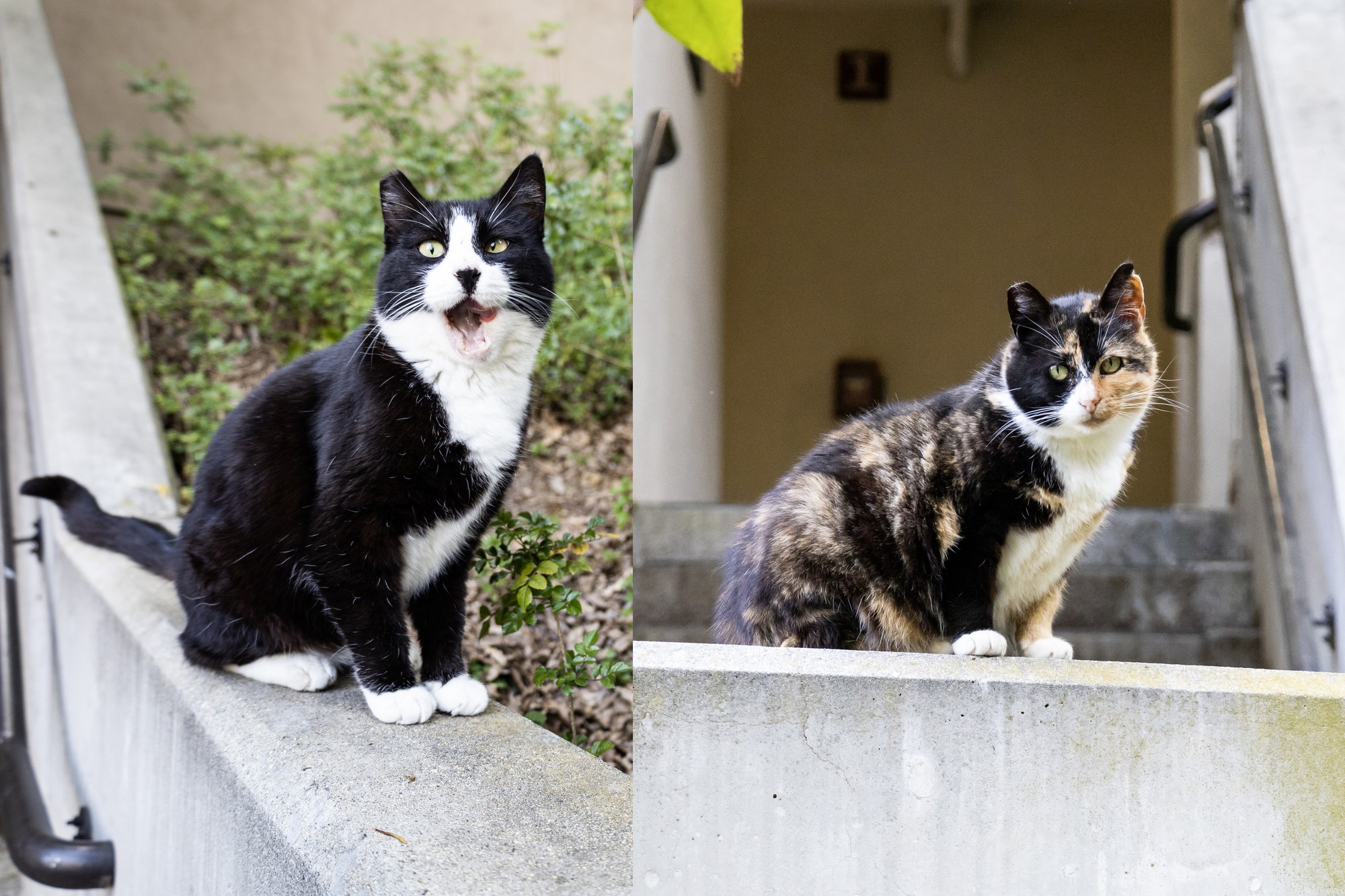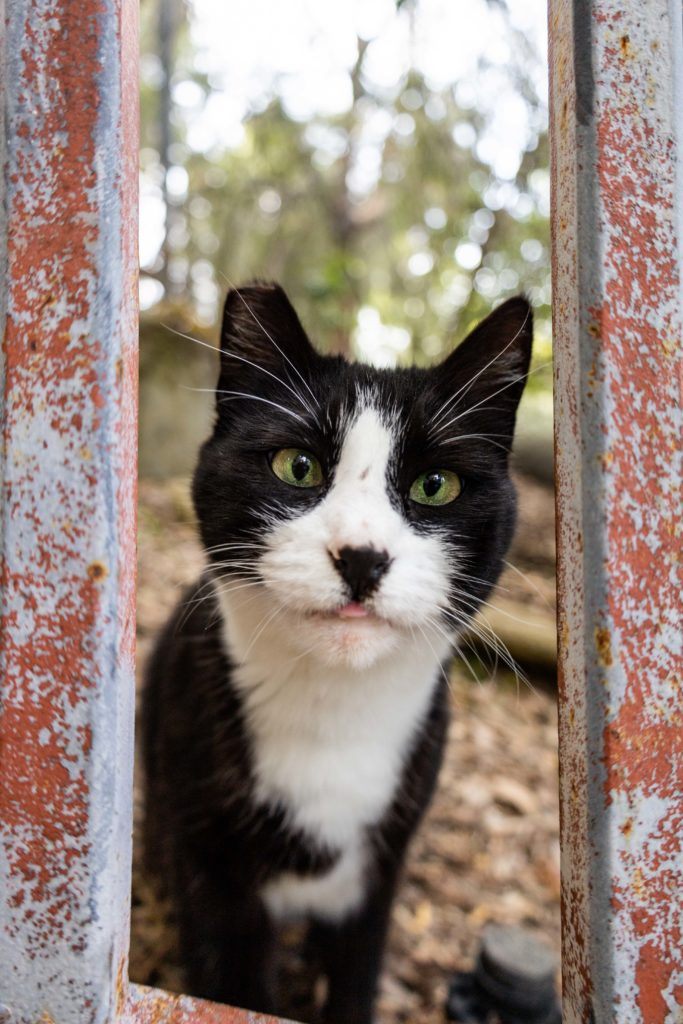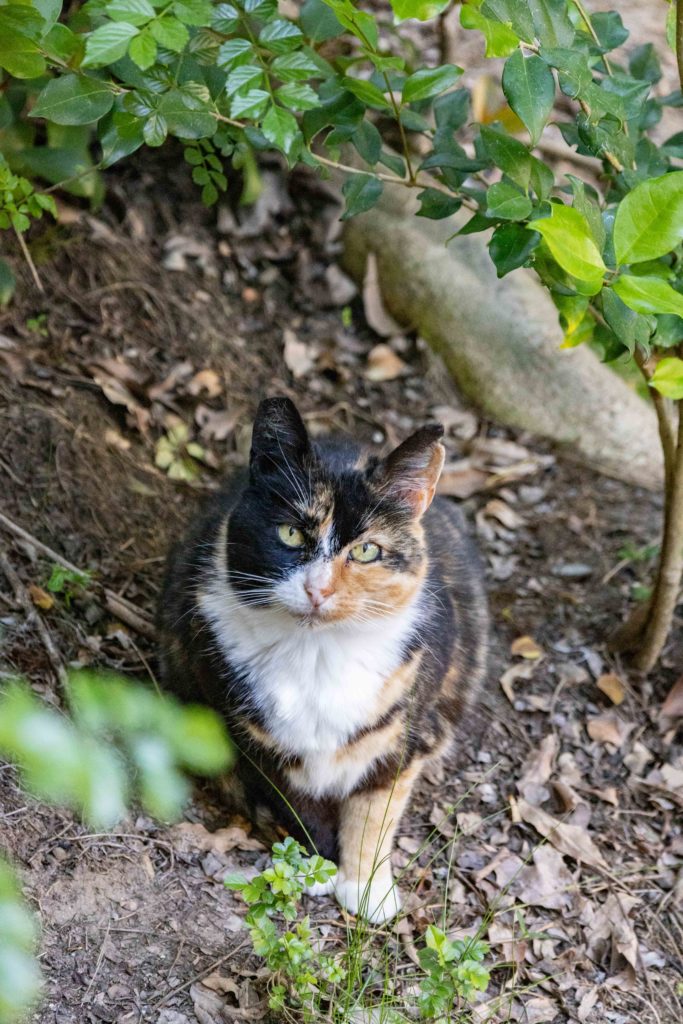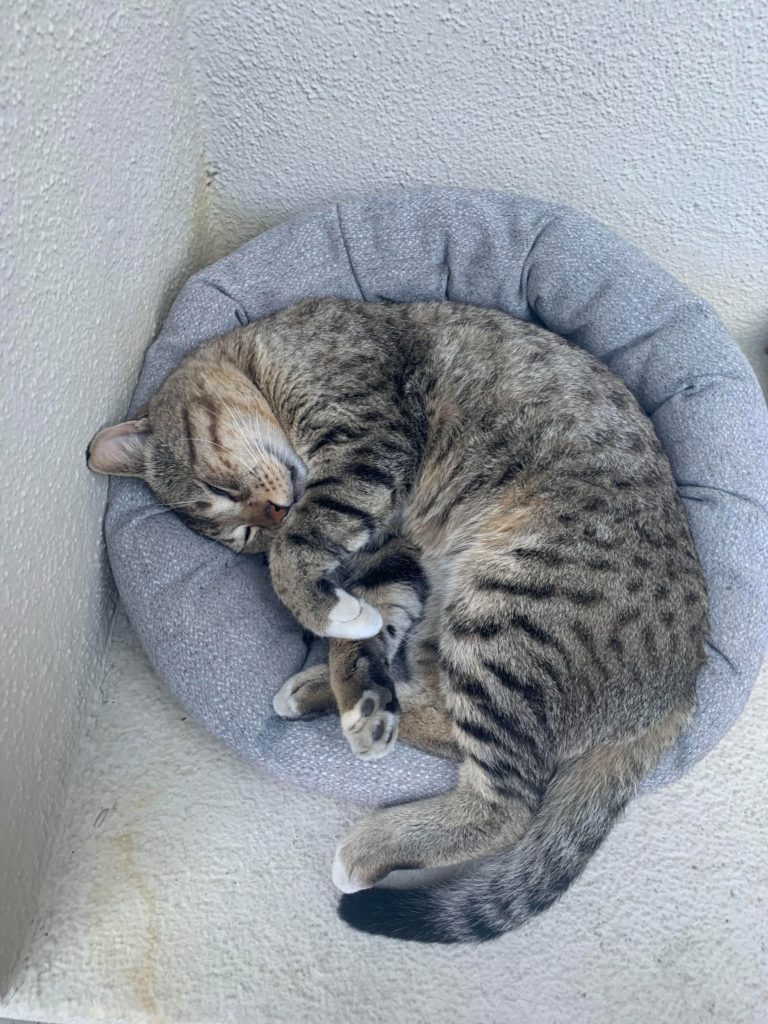Hill policy on feeding stray cats sparks worry, concerns among residents

Two of the stray cats on the Hill are pictured. Caretakers and students are concerned about the cats’ health following UCLA’s policy on feeding stray cats. (Neha Krishnakumar/Daily Bruin)
UCLA’s current policy on taking care of stray cats on the Hill has left student caretakers and fans worried about their furry companions’ futures.
The cats on the Hill, with student-given names such as Sproul Cat, Big Mama – also known as Tux – and Cali, have become well-known to residents. Sproul Cat, which has striped tan fur, first received attention on the UCLA subreddit in February. His friend – Cali, a calico cat – is known for her feisty personality, whereas Big Mama, a black cat with a white tuxedo underbelly, is very friendly around humans, said a student caretaker, who wished to remain anonymous because of the restrictions placed on feeding.
The caretaker originally started feeding the stray cats at the beginning of the academic school year. They said they noticed a previous UCLA Residential Life staff member had left cat food on the steps of Delta Terrace after they were no longer able to care for the cats.
Since then, the caretaker said they buy cat food with their own money once a month. Other students at Delta Terrace have also pitched in their own money to pay for food, toys, treats and even a small bed, they said. Both Big Mama and Cali typically hang around near Delta Terrace, while Sproul Cat roams around the entire Hill throughout the day, the caretaker said.

“I felt like they did have a caretaker last year, and it was unfair for them to just not have one anymore so suddenly,” the caretaker said.
The caretaker said the cats have helped them destress from their academic responsibilities. Before leaving for their 8 a.m. class, they would pet the cats, which soon became a tradition and consistent part of their life, they said.
While these cats are beloved by many students, ResLife recently posted paper signs around House 8 of Delta Terrace and sent Delta Terrace residents an email at the start of the quarter about prohibiting the feeding of the cats.
However, in an emailed statement, ResLife said there is no policy against feeding the cats on the Hill. Current restrictions center around the health and well-being of community members, as food and other amenities left outside can attract more cats and other animals to the Hill, they added.
While they have been making efforts to contact local foster networks for the cats, the caretaker said they feel that there has been little to no action done on ResLife’s part. They said they hoped ResLife would provide an alternative support system for the cats that includes proper veterinary care, food and shelter.

The caretaker said ResLife staffers have also taken away any food, bedding and other amenities that were left either outside or in the walkways inside of the building, keeping them at the Sproul front desk until retrieved by the cats’ student caretakers.
As a result of the feeding policy, the caretaker said when they do attempt to feed the cats, they make sure not to leave the food out longer than half an hour.
As their access to the cats has been limited because of the newly imposed restrictions, the caretaker said the trust between them and the cats has been affected. They added that they are concerned about the cats experiencing medical issues without their knowledge.
“They have to meow really loudly, and hopefully, if I hear out my window, then I’ll bring them food,” the caretaker said. “It’s such a difference in treatment that they might change their attitude towards us. I hope not.”
Student fans on the Hill have also expressed disapproval of the policy.
Alex Antenen, a first-year neuroscience student, said she questions whether ResLife considered the well-being of the cats when enforcing the restrictions.
She added that the cats at Delta Terrace, for example, have started to come less frequently because of the lack of food.
“I feel like they’re not our cats anymore,” Antenen said. “That’s fine. I’m just wondering who’s feeding them.”
Ethan Hopkins, a first-year computer science student, said ResLife’s feeding policy represents a disconnect between what UCLA Housing thinks students need and what students want.
“I don’t think taking away a few cat bowls is really going to get rid of any wild animals. There’s already so much trash here,” Hopkins said. “It’s barely changing the amount of food that they have access to.”
Despite disapproval over ResLife’s rules regarding feeding, the cats remain a refuge for students on the Hill.

Wesley Loughran, a first-year undeclared student who claims to have coined the name Sproul Cat, said the stray cats have played a valuable part in campus culture. After Powell Cat’s death, he said it is important to look to the new cats on the Hill as a symbol of support for UCLA students.
“On the days where life sucks, it’s another reminder that we’re at an amazing place. And even if everything seems terrible, there are small moments of joy,” Loughran said.




